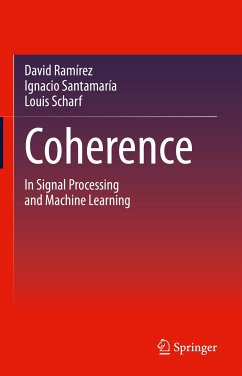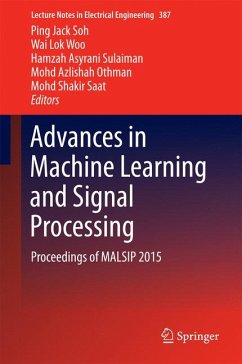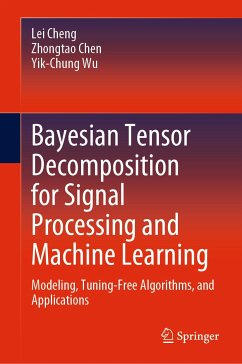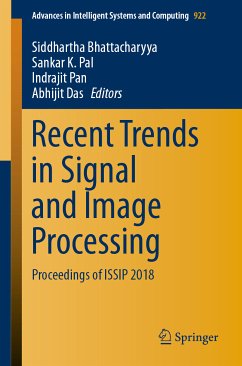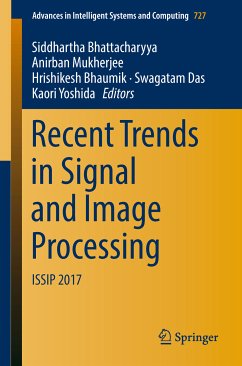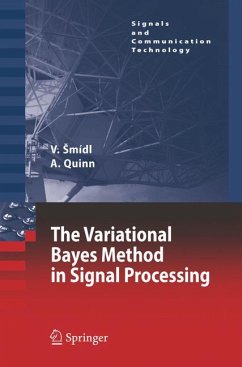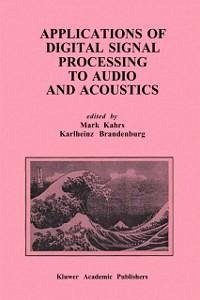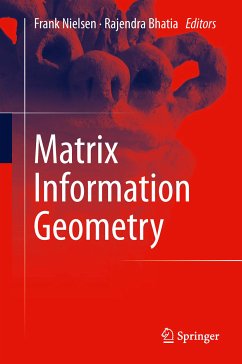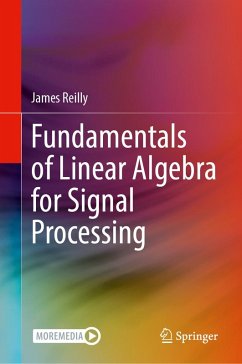
Elliptically Symmetric Distributions in Signal Processing and Machine Learning (eBook, PDF)

PAYBACK Punkte
68 °P sammeln!
This book constitutes a review of recent developments in the theory and practical exploitation of the elliptical model for measured data in both classical and emerging areas of signal processing. It develops techniques usable in (among other areas): graph learning, robust clustering, linear shrinkage, information geometry, subspace-based algorithm design, and semiparametric and misspecified estimation.The various contributions combine to show how the goal of inferring information from a set of acquired data, recurrent in statistical signal processing, can be achieved, even when the common prac...
This book constitutes a review of recent developments in the theory and practical exploitation of the elliptical model for measured data in both classical and emerging areas of signal processing. It develops techniques usable in (among other areas): graph learning, robust clustering, linear shrinkage, information geometry, subspace-based algorithm design, and semiparametric and misspecified estimation.
The various contributions combine to show how the goal of inferring information from a set of acquired data, recurrent in statistical signal processing, can be achieved, even when the common practical assumption of Gaussian distribution in the data is not valid. The elliptical model propounded maintains the performance of its inference procedures even when that assumption fails. The elliptical distribution, being fully characterized by its location vector, its scatter/covariance matrix and its so-called density generator, used to describe the impulsiveness of the data, is sufficiently flexible to model heterogeneous applications.
This book is of interest to any graduate students and academic researchers wishing to acquaint themselves with the latest research in an area of rising consequence. It is also of assistance to practitioners working in data analysis, wireless communications, radar, and image processing.
The various contributions combine to show how the goal of inferring information from a set of acquired data, recurrent in statistical signal processing, can be achieved, even when the common practical assumption of Gaussian distribution in the data is not valid. The elliptical model propounded maintains the performance of its inference procedures even when that assumption fails. The elliptical distribution, being fully characterized by its location vector, its scatter/covariance matrix and its so-called density generator, used to describe the impulsiveness of the data, is sufficiently flexible to model heterogeneous applications.
This book is of interest to any graduate students and academic researchers wishing to acquaint themselves with the latest research in an area of rising consequence. It is also of assistance to practitioners working in data analysis, wireless communications, radar, and image processing.
Dieser Download kann aus rechtlichen Gründen nur mit Rechnungsadresse in A, B, BG, CY, CZ, D, DK, EW, E, FIN, F, GR, HR, H, IRL, I, LT, L, LR, M, NL, PL, P, R, S, SLO, SK ausgeliefert werden.



